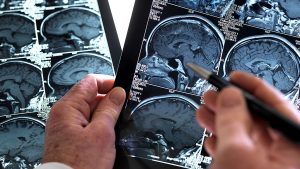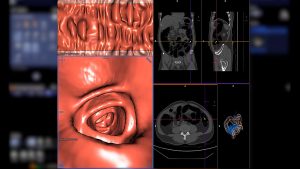Bone health is an essential part of overall well-being, and understanding DEXA scan results is a crucial step in tracking progress. These results give valuable insight into bone density and body composition, helping individuals make informed choices about their health.
Lifestyle choices play a significant role in shaping bone strength and body composition. Factors such as diet, exercise, sleep, and habits like smoking or alcohol use can directly influence bone density. With the right adjustments, you can improve DEXA scan results and maintain long-term bone health.
Understanding DEXA Scan Results
A DEXA scan, also known as a bone density or body composition scan, measures the amount of bone mineral content and lean vs. fat mass in the body. These results provide a clear picture of bone strength and overall health status, making them an important tool for assessing fracture risk and monitoring changes over time.
Interpreting DEXA scan results allows individuals and healthcare providers to develop personalized health strategies. They reveal trends that point to the effects of daily habits, showing how lifestyle affects bone density and overall body composition.

Nutrition and Its Impact on DEXA Results
Nutrition and DEXA scan results go hand in hand. Adequate calcium, vitamin D, and protein intake are essential to building and maintaining strong bones, while poor nutrition may lead to reduced bone density over time.
Exercise and Physical Activity
Physical activity is one of the most powerful ways to protect and strengthen bones. Weight-bearing exercise for bone strength, such as walking, jogging, and resistance training, stimulates bone remodeling and promotes density improvements. Regular movement also helps maintain lean muscle mass, which supports the skeletal system.
Smoking, Alcohol, and Bone Health
Smoking and bone health are closely linked, as tobacco use reduces bone-forming cells and lowers bone density. Alcohol and bone density also have a strong relationship, with excessive drinking contributing to weaker bones and a higher risk of fractures. Avoiding these habits is key to improving DEXA scan results.
Sleep and Stress Management
Chronic stress and poor sleep can negatively impact bone health. Stress hormones such as cortisol may interfere with bone formation, while inadequate sleep affects the body’s ability to repair and recover. Prioritizing sleep and practicing stress-reduction techniques like meditation can help protect bone density.

Beyond Diet and Exercise: Hidden Factors Affecting DEXA Scan Results
Bone health is shaped by more than nutrition and DEXA scan results or the frequency of your workouts. Understanding these lesser-known contributors helps you make smarter choices that improve DEXA scan results and support long-term bone strength.
Hormonal Balance and Bone Density
Hormones like estrogen, testosterone, and thyroid levels play a critical role in bone metabolism. Keeping hormones in check through regular medical checkups can help prevent bone loss and support lifestyle changes for osteoporosis prevention.
Medications and Bone Health
Some medications, including corticosteroids and certain cancer treatments, may reduce bone density. Discussing alternative treatments or bone-protective strategies with your doctor ensures these body composition scan lifestyle factors don’t negatively impact your results.
Gut Health and Nutrient Absorption
Even with a diet rich in calcium and vitamin D, poor gut health can limit nutrient absorption. Supporting digestion with probiotics and fiber helps you get the most from nutrition and DEXA scan benefits.
Hydration and Bone Support
Proper hydration helps maintain muscle function, which supports the skeleton during physical activity. Staying hydrated also improves exercise and DEXA scan results by helping muscles recover effectively.
Environmental and Lifestyle Stressors
Factors such as pollution, limited sunlight, and sedentary routines can slowly weaken bones. Simple lifestyle changes for osteoporosis prevention, such as spending time outdoors and moving throughout the day, can counteract these effects and lead to better DEXA outcomes.
Body Weight and DEXA Results
Maintaining a healthy weight is another factor that influences DEXA scan results. Very low body weight can increase the risk of low bone density, while excess body fat may contribute to inflammation that weakens bone strength. Striking a balance supports optimal results and reduces the risk of osteoporosis.
Making Lifestyle Changes for Better DEXA Results
Small, consistent adjustments to daily habits can significantly improve bone health and boost DEXA scan results over time.
Prioritize Bone-Healthy Nutrition
A balanced diet rich in calcium, vitamin D, and protein helps build and maintain strong bones. Include dairy products, leafy greens, nuts, and fortified foods in your meals to support long-term bone health.
Commit to Weight-Bearing Exercise
Weight-bearing exercise for bone strength, such as walking, jogging, or resistance training, encourages bone remodeling and improves density. Aim for at least three sessions per week to see measurable improvements in your DEXA scan results.
Quit Smoking and Limit Alcohol
Smoking and bone health are directly connected, as tobacco use slows bone formation and leads to density loss. Limiting alcohol helps protect bone mass and lowers the risk of fractures over time.
Manage Stress and Improve Sleep
High stress levels and poor sleep interfere with the body’s ability to repair and strengthen bones. Practice relaxation techniques and get 7–8 hours of quality sleep to optimize recovery.
Maintain a Healthy Body Weight
Keeping a balanced weight supports strong bones and reduces strain on joints. Avoid extreme dieting, as it can lead to bone loss and negatively affect DEXA scan results.

Why Follow-Up DEXA Scans Matter
A single scan provides a snapshot, but follow-up DEXA scans show whether your efforts are working. Comparing results over time helps refine your nutrition, exercise, and habits for maximum benefit.
Setting Realistic Goals
Improvements in bone density and body composition happen gradually. Setting small, achievable milestones keeps you motivated and makes it easier to stick with lifestyle changes for osteoporosis prevention.
Using Data to Adjust Habits
If results are not improving, consider reviewing exercise and DEXA scan results with your doctor or trainer. They may suggest adjusting your workout plan, improving nutrition, or addressing hidden lifestyle factors.
Combining Scans with Other Health Metrics
Pairing DEXA scans with other measurements, like vitamin D levels or hormone tests, gives a clearer picture of overall health. This holistic approach helps target body composition scan lifestyle factors more effectively.
Staying Consistent and Accountable
Keeping a health journal or using a tracking app can help maintain long-term consistency. Regular monitoring makes it easier to spot trends and celebrate improvements.
Taking Charge of Your Bone Health
Improving DEXA scan results is possible with consistent, targeted lifestyle changes. A balanced diet, regular exercise, healthy habits, and stress management all play a role in supporting bone health and preventing osteoporosis.One Step Diagnostic offers reliable DEXA scan services to help you track progress and take control of your health journey. Our expert team provides accurate scans and guidance tailored to your needs. Contact us today to schedule your appointment and take the first step toward stronger, healthier bones.




